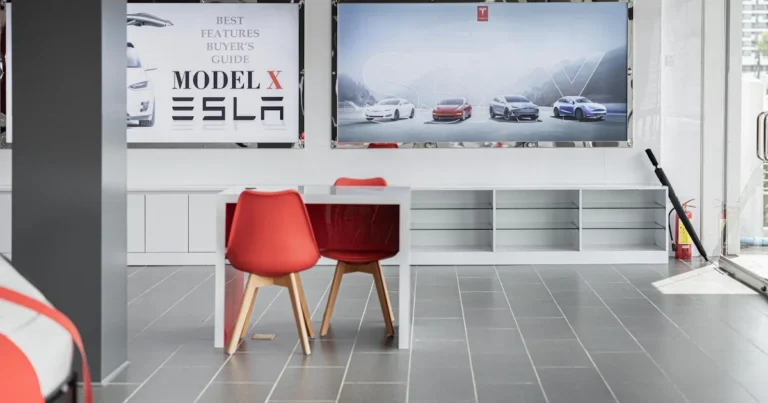Support our educational content for free when you purchase through links on our site. Learn more
Why Suze Orman Says NOT to Lease a Car: 8 Shocking Reasons (2025) 🚗
Ever wondered why Suze Orman, the queen of personal finance, is so adamant about steering people away from leasing cars? It’s not just a casual opinion—she calls leasing a “financial trap” that can drain your wallet without building any real value. But what exactly makes leasing so risky in her eyes? And is she right for everyone?
In this article, we’ll unravel 8 compelling reasons behind Suze’s strong stance against leasing, backed by real-world insights from the Car Leases™ team. From hidden fees to endless payments, we’ll expose the pitfalls and also reveal when leasing might actually make sense. Ready to find out if leasing is secretly sabotaging your financial freedom? Buckle up, because the truth might surprise you!
Key Takeaways
- Suze Orman warns leasing is often a money pit: lower monthly payments but no ownership or equity.
- Hidden fees and mileage limits can turn leases costly and stressful.
- Buying with a short-term loan (≤36 months) is her recommended path to financial freedom.
- Leasing can work for business owners, tech enthusiasts, or those wanting predictable costs.
- Understanding lease terms and negotiating well is crucial if you choose to lease.
Looking for the best lease deals or want to explore buying options? Check out our guides on Car Lease Basics and Auto Financing Options.
Ready to shop?
- 👉 Shop Toyota leases on: TrueCar | Edmunds | Toyota Official
- 👉 Shop Honda leases on: TrueCar | Edmunds | Honda Official
Table of Contents
- ⚡️ Quick Tips and Facts
- 📚 The Roots of Suze Orman’s Anti-Leasing Stance: A Deep Dive into Her Financial Philosophy
- Suze Orman’s Core Arguments Against Car Leasing: Why She Says “Don’t Do It!”
- 💸 The Illusion of Lower Monthly Payments: Why Suze Sees Red
- 📉 The Depreciation Trap: Zero Equity, Zero Return
- 🔒 The Lease Contract Conundrum: Hidden Fees and Restrictive Covenants
- 🛣️ Mileage Madness: The Cost of Driving Too Much (or Too Little!)
- 🎨 Wear and Tear Woes: When Every Scratch Costs You
- 🔄 The Endless Payment Cycle: Never Truly Owning Your Ride
- ❌ The Financial Freedom Foe: How Leasing Hinders Wealth Building
- 🚨 The “What If” Factor: Life Changes and Lease Penalties
- 🔑 What Suze Orman Recommends Instead: The Path to Financial Freedom Through Smart Car Buying
- 💪 Suze Orman’s Golden Rules: The Financial Strength Test for Car Ownership
- 🤔 Is Suze Always Right? When Leasing Might Make Sense for YOU (Our Take at Car Leases™)
- 📊 Leasing vs. Buying: A Head-to-Head Showdown (Beyond Suze’s View)
- Who Benefits from Leasing? Real-World Scenarios Where It Shines
- Navigating the Lease Landscape: Tips for Smart Leasing (If You Choose To Lease)
- 🤯 Busting the Myths: Separating Fact from Fiction in Car Leasing
- 🏁 The Road Ahead: Finding Your Best Car Ownership Path
- 🔗 Recommended Resources for Your Car Journey
- ❓ Frequently Asked Questions About Car Leasing and Buying
- 📚 Reference Links and Further Reading
⚡️ Quick Tips and Facts
Before we dive deep into Suze Orman’s fiery take on car leasing, let’s kick things off with some quick facts and tips from the Car Leases™ crew to get you warmed up:
- ✅ Suze Orman strongly advises against leasing cars because it often leads to paying more over time without building any equity.
- ✅ Leasing usually means lower monthly payments but higher long-term costs and no ownership.
- ✅ Suze recommends buying a car with a loan no longer than 36 months to avoid excessive interest and depreciation losses.
- ✅ Leasing contracts often come with strict mileage limits and wear-and-tear fees that can surprise you at lease-end.
- ✅ If you want to lease, understand the lease terms thoroughly—money factor, residual value, and fees matter!
- ✅ Leasing can make sense for business owners, tech lovers who want new cars every few years, or those who want predictable expenses.
- ✅ Suze’s advice aligns with her broader financial philosophy: build wealth, avoid wasteful spending, and own your assets.
Want to know why Suze Orman is so passionate about this? Stick around—we’ll unpack her reasoning, share our own insights, and help you decide what’s best for your wallet! For a great primer on leasing basics, check out our Car Lease Basics section.
📚 The Roots of Suze Orman’s Anti-Leasing Stance: A Deep Dive into Her Financial Philosophy
Suze Orman isn’t just some financial guru spouting random advice—her views come from decades of experience helping people get their money right. Her anti-leasing stance is deeply rooted in her core principles:
- Build equity and financial security: Suze believes that owning assets outright is key to long-term wealth.
- Avoid recurring expenses that don’t build value: Leasing is, in her eyes, renting a depreciating asset with no payoff.
- Keep debt short and manageable: She famously says car loans longer than 36 months are a waste of money.
- Beware of hidden costs and fees: Leasing contracts often have fine print that traps consumers.
Her podcast episodes and blog posts (like this one) repeatedly emphasize that leasing a car is usually a financial dead-end. She encourages people to think about opportunity cost—what else could you do with those monthly lease payments? Could you invest, save for retirement, or pay down debt instead?
At Car Leases™, we respect Suze’s financial wisdom but also know that one size doesn’t fit all. That’s why we’ll explore both sides of the coin.
Suze Orman’s Core Arguments Against Car Leasing: Why She Says “Don’t Do It!”
Let’s break down Suze’s main reasons for steering clear of leasing, with some juicy details from our own experience.
1. 💸 The Illusion of Lower Monthly Payments: Why Suze Sees Red
Leasing looks cheaper because monthly payments are often lower than financing a car purchase. But here’s the catch:
- You’re paying for depreciation plus interest and fees, but never building equity.
- Lower payments can tempt you into leasing a more expensive car than you’d buy.
- Over multiple lease cycles, you may pay more total money than buying and keeping a car long-term.
Suze warns that this “deal” is a financial mirage. At Car Leases™, we’ve seen customers get lured by low payments only to realize they’re stuck in a cycle of perpetual payments.
2. 📉 The Depreciation Trap: Zero Equity, Zero Return
When you lease, the leasing company owns the car. You’re essentially renting a rapidly depreciating asset.
- After the lease ends, you have no ownership stake.
- The car’s value drops fast—new cars lose about 20-30% of their value in the first year (Kelley Blue Book).
- Leasing means you never benefit from the car’s residual value.
Suze’s mantra: “Why pay for something you’ll never own?” Wise words.
3. 🔒 The Lease Contract Conundrum: Hidden Fees and Restrictive Covenants
Lease agreements are notorious for:
- Excess mileage fees (usually 15-25 cents per mile over limit).
- Wear and tear charges for scratches, dents, and interior damage.
- Disposition fees when you return the car.
- Early termination penalties if your life circumstances change.
Suze points out that these fees can add up to hundreds or thousands of dollars unexpectedly. At Car Leases™, we always tell clients: read the fine print carefully.
4. 🛣️ Mileage Madness: The Cost of Driving Too Much (or Too Little!)
Leases typically limit you to 10,000–15,000 miles per year. Going over means costly penalties.
- If you drive more than the limit, you pay extra.
- If you drive less, you still pay for the mileage allowance you didn’t use.
- This makes leasing a poor fit for road warriors or those with unpredictable driving habits.
Suze says this lack of flexibility is a big downside.
5. 🎨 Wear and Tear Woes: When Every Scratch Costs You
Unlike owning, where minor dings are part of life, leases penalize you for “excessive” wear:
- Scratches, chips, worn tires, and interior stains can trigger additional charges.
- Suze warns this can turn a seemingly affordable lease into a financial headache.
6. 🔄 The Endless Payment Cycle: Never Truly Owning Your Ride
Leasing means you’re always paying for a car, never owning it outright.
- No asset to sell or trade later.
- No payoff period—payments continue indefinitely if you keep leasing.
- Suze calls this “throwing money away.”
At Car Leases™, we’ve seen customers trapped in this cycle, longing for the day they own a car free and clear.
7. ❌ The Financial Freedom Foe: How Leasing Hinders Wealth Building
Suze’s bigger picture: leasing doesn’t build wealth.
- You miss out on the chance to own a valuable asset.
- Money spent on lease payments could be invested or saved.
- Leasing can keep you in a perpetual state of financial dependence.
8. 🚨 The “What If” Factor: Life Changes and Lease Penalties
Life happens—job changes, moves, family needs.
- Breaking a lease early can cost thousands.
- Suze stresses the importance of financial flexibility, which leasing often restricts.
🔑 What Suze Orman Recommends Instead: The Path to Financial Freedom Through Smart Car Buying
Suze’s alternative? Buy smart, pay off quickly, and keep your car long-term.
- She advocates for car loans no longer than 36 months to avoid excessive interest.
- Buy a car you can afford without stretching your budget.
- Keep the car for many years after the loan ends to maximize value.
- Negotiate hard for the best price—don’t fall for dealer tricks.
- Consider buying certified pre-owned for a balance of value and reliability.
At Car Leases™, we echo this advice. Owning a car outright is like having a financial anchor in a sea of expenses.
💪 Suze Orman’s Golden Rules: The Financial Strength Test for Car Ownership
Suze offers a simple test before buying or leasing:
- Can you afford the monthly payment without strain?
- Will you own the car outright in 3 years or less?
- Are you prepared for maintenance and insurance costs?
- Is the car purchase aligned with your long-term financial goals?
If you answer “no” to any, reconsider your plan.
🤔 Is Suze Always Right? When Leasing Might Make Sense for YOU (Our Take at Car Leases™)
Suze’s advice is solid, but life isn’t black and white. Leasing can be a smart choice for some:
✅ The Perks of Leasing: Flexibility, New Tech, and Predictable Costs
- Drive a new car every 2-3 years with the latest safety and tech features.
- Lower upfront costs and predictable monthly payments.
- Warranty coverage usually lasts the lease term, reducing repair worries.
- Good for people who don’t want the hassle of selling a used car.
- Business owners can sometimes deduct lease payments.
❌ The Pitfalls of Buying: Depreciation, Maintenance Surprises, and Long-Term Commitment
- Buying means absorbing depreciation losses.
- Older cars can have unexpected repair costs.
- Selling or trading a used car can be a hassle.
- Long-term ownership requires commitment and budgeting for maintenance.
At Car Leases™, we recommend weighing these pros and cons carefully. Your lifestyle, financial goals, and driving habits matter.
📊 Leasing vs. Buying: A Head-to-Head Showdown (Beyond Suze’s View)
| Aspect | Leasing | Buying |
|---|---|---|
| Monthly Payments | Lower, but ongoing | Higher initially, ends after loan payoff |
| Ownership | No, you return the car | Yes, asset owned outright |
| Upfront Costs | Usually lower (down payment + fees) | Higher down payment + taxes |
| Mileage Limits | Yes, with penalties for overage | No limits |
| Maintenance Costs | Usually covered under warranty | Owner pays after warranty expires |
| Flexibility | High, with option to switch cars frequently | Lower, tied to car ownership |
| Long-Term Cost | Can be higher due to perpetual payments | Usually lower if car kept long-term |
For a detailed guide on total cost of ownership, visit our Auto Financing Options section.
Who Benefits from Leasing? Real-World Scenarios Where It Shines
Let’s get real. Leasing isn’t evil—it’s just not for everyone. Here are some folks who might find leasing a great fit:
🧑💼 The Business Professional: Image, Tax Advantages, and Predictability
- Can deduct lease payments as a business expense.
- Keeps a fresh, professional image with newer cars.
- Predictable expenses simplify budgeting.
🚗 The Tech Enthusiast: Always Driving the Latest & Greatest
- Loves having the newest safety features, infotainment, and eco-friendly tech.
- Enjoys switching cars every few years without hassle.
🧘 The Budget-Conscious Planner: Predictable Monthly Outlays and Less Hassle
- Prefers fixed monthly payments without surprises.
- Avoids large repair bills by driving under warranty.
- Doesn’t want the headache of selling a used car.
Navigating the Lease Landscape: Tips for Smart Leasing (If You Choose To Lease)
If you decide to lease despite Suze’s warnings, here’s how to do it smartly.
📝 Decoding the Lease Agreement: What to Look For Beyond the Monthly Payment
- Money Factor: The lease’s interest rate—lower is better.
- Residual Value: The car’s estimated worth at lease end—higher means lower payments.
- Mileage Allowance: Know your driving habits and pick a suitable limit.
- Fees: Disposition, acquisition, early termination—read carefully.
- Wear and Tear Policy: Understand what’s considered “excessive.”
Negotiating Your Best Deal: Money Factor, Residual Value, and Cap Cost Explained
- Negotiate the capitalized cost (price of the car) just like buying.
- Ask for the lowest possible money factor.
- Choose a lease with a high residual value to reduce payments.
- Consider multiple dealerships to compare offers.
End-of-Lease Options: Buyout, Return, or New Lease? Your Choices Matter
- Buyout: Purchase the car if the price is right.
- Return: Hand back the car and walk away (watch for fees).
- New Lease: Start fresh with a new vehicle.
At Car Leases™, we advise planning ahead for lease-end to avoid surprises.
🤯 Busting the Myths: Separating Fact from Fiction in Car Leasing
Let’s clear up some common misconceptions:
-
Myth: Leasing is always cheaper.
Fact: Lower monthly payments don’t always mean lower total cost. -
Myth: You can’t negotiate a lease.
Fact: Everything from price to money factor is negotiable. -
Myth: Leasing is only for people with perfect credit.
Fact: While better credit helps, many leasing companies offer options for various credit scores. See our Credit Score and Car Leasing for tips. -
Myth: Leasing means you can’t customize your car.
Fact: True—you generally can’t modify a leased vehicle without penalties.
🏁 The Road Ahead: Finding Your Best Car Ownership Path
So, what’s the bottom line?
- Suze Orman’s advice is a wake-up call to think critically about leasing.
- Leasing can be a tool for some, but a trap for many.
- Your best bet? Assess your financial goals, driving habits, and lifestyle.
- Use our guides at Car Leases™ to compare options, crunch numbers, and negotiate like a pro.
Remember, the goal is to drive smart, save money, and build wealth—not just to get behind the wheel.
🔗 Recommended Resources for Your Car Journey
Want to dig deeper? Check out these trusted resources:
- Car Lease Basics — Learn the leasing lingo and fundamentals.
- Electric Vehicle Leases — Explore EV lease options and incentives.
- Auto Financing Options — Understand loans, refinancing, and more.
- Credit Score and Car Leasing — Tips to improve your credit for better lease deals.
- Best Lease Terms — How to get the most favorable lease contracts.
❓ Frequently Asked Questions About Car Leasing and Buying
Q: Is leasing always more expensive than buying?
A: Not always. Leasing can have lower monthly payments but may cost more over time. It depends on your usage and how long you keep the car.
Q: Can I negotiate a lease deal?
A: Absolutely! Negotiate the car price, money factor, and fees just like a purchase.
Q: What happens if I exceed my lease mileage?
A: You’ll pay a per-mile penalty, often 15-25 cents per mile.
Q: Can I buy the car at the end of the lease?
A: Yes, most leases include a buyout option at a predetermined price.
Q: Does leasing affect my credit score?
A: Leasing involves a credit check and monthly payments reported to credit bureaus, so it can impact your score.
For more FAQs, visit our Car Lease Basics FAQ.
📚 Reference Links and Further Reading
- Suze Orman Official Site: https://www.suzeorman.com
- Kelley Blue Book on Depreciation: https://www.kbb.com/car-advice/how-to-beat-car-depreciation/
- Edmunds Leasing Guide: https://www.edmunds.com/car-leasing/
- TrueCar Lease Deals: https://www.truecar.com/l/lease-a-car/
- AutoTrader Lease Listings: https://www.autotrader.com/cars-for-lease
- Alliant Credit Union Ultimate Opportunity Savings Account: https://www.myalliant.com/Ultimate
Ready to take control of your car finances? Whether you decide to buy or lease, knowledge is power—and we’ve got your back! 🚗💨
Conclusion
After unpacking Suze Orman’s passionate stance on car leasing, it’s clear why she urges caution: leasing often feels like a financial trap disguised as a convenience. Her core message is simple yet powerful—leasing a car is usually a waste of money because you never build equity, face hidden fees, and remain stuck in a cycle of payments without ownership.
At Car Leases™, we agree that for most people, buying a car with a loan no longer than 36 months and keeping it long-term is the smarter financial move. This approach aligns with Suze’s philosophy of building wealth and avoiding unnecessary expenses. However, we also recognize that leasing can be a useful tool for certain lifestyles—like business professionals needing tax deductions or tech enthusiasts who crave the latest models.
If you’re considering leasing, educate yourself on the lease terms, negotiate hard, and plan for end-of-lease costs. But if you want to build financial freedom and own your vehicle outright, Suze’s advice to buy smart and pay off quickly is a golden rule.
So, whether you’re team #BuyOrTeamLease, remember: your best car decision is the one that fits your financial goals, driving habits, and peace of mind. Ready to make that choice? We’ve got your back every mile of the way!
Recommended Links
-
👉 Shop Toyota on:
Toyota Official Website | TrueCar Toyota Lease Deals | Edmunds Toyota Lease Offers -
👉 Shop Honda on:
Honda Official Website | TrueCar Honda Lease Deals | Edmunds Honda Lease Offers -
👉 Shop Tesla on:
Tesla Official Website | TrueCar Tesla Lease Deals | Edmunds Tesla Lease Offers -
Alliant Credit Union Ultimate Opportunity Savings Account:
MyAlliant Ultimate Savings
❓ Frequently Asked Questions About Car Leasing and Buying
What are the financial pitfalls of leasing a car that Suze Orman warns against?
Suze Orman highlights several financial pitfalls of leasing:
- No equity building: You’re essentially renting a car, so monthly payments don’t contribute to ownership.
- Hidden fees: Excess mileage, wear and tear, disposition fees, and early termination penalties can add unexpected costs.
- Depreciation costs: Leasing payments factor in the car’s depreciation, but you never benefit from residual value.
- Endless payments: Leasing can trap you in a cycle of continuous payments with no payoff.
- Limited flexibility: Mileage limits and lease terms restrict your driving habits and lifestyle changes.
These pitfalls mean you might pay more over time without gaining an asset, which Suze views as a waste of money.
Does Suze Orman recommend buying a car outright instead of leasing, and why?
Yes, Suze strongly recommends buying a car outright or financing it with a loan no longer than 36 months. Her reasons:
- Ownership builds wealth: Once paid off, the car is an asset you can keep, sell, or trade.
- Avoids perpetual payments: After the loan, you drive payment-free.
- More financial freedom: No mileage limits or wear-and-tear penalties.
- Better long-term value: Keeping a car for many years spreads out depreciation costs.
She advises negotiating hard to buy a reliable car you can afford and keeping it long-term to maximize value.
How do leasing fees and interest rates contribute to Suze Orman’s argument against car leasing?
Leasing fees and interest rates (money factor) increase the total cost of leasing:
- Money factor: This is the lease’s interest rate, often marked up by dealers, increasing monthly payments.
- Acquisition and disposition fees: Upfront and end-of-lease fees add to your cost.
- Excess mileage and wear fees: Penalties for exceeding limits or damage can be costly.
- Early termination fees: Breaking a lease early can lead to large penalties.
Suze argues that these fees and interest charges make leasing more expensive than it appears, contributing to the “waste of money” she warns about.
What alternative options to leasing does Suze Orman suggest for people who want a new car but can’t afford to buy one outright?
Suze suggests:
- Financing with a short-term loan (≤36 months): Keeps interest costs low and ownership sooner.
- Buying certified pre-owned cars: Offers newer vehicles at lower prices with warranties.
- Negotiating aggressively: Get the best deal possible to reduce loan amounts.
- Saving for a larger down payment: Reduces monthly payments and loan length.
- Avoiding overly expensive cars: Choose vehicles within your budget to avoid long loans.
These strategies help people drive newer cars without the pitfalls of leasing.
📚 Reference Links and Further Reading
- Suze Orman Official Website: https://www.suzeorman.com
- Suze Orman Facebook Post on Car Loans: A car loan longer than 36 months is a waste of money
- Kelley Blue Book on Depreciation: Why New Cars Depreciate So Fast
- Edmunds Car Leasing Guide: https://www.edmunds.com/car-leasing/
- TrueCar Lease Deals: https://www.truecar.com/l/lease-a-car/
- Alliant Credit Union Ultimate Opportunity Savings Account: https://www.myalliant.com/Ultimate
Ready to navigate your car journey with confidence? Whether you buy or lease, keep Suze’s wisdom and our expert tips in your toolkit—and drive smart! 🚗💡





